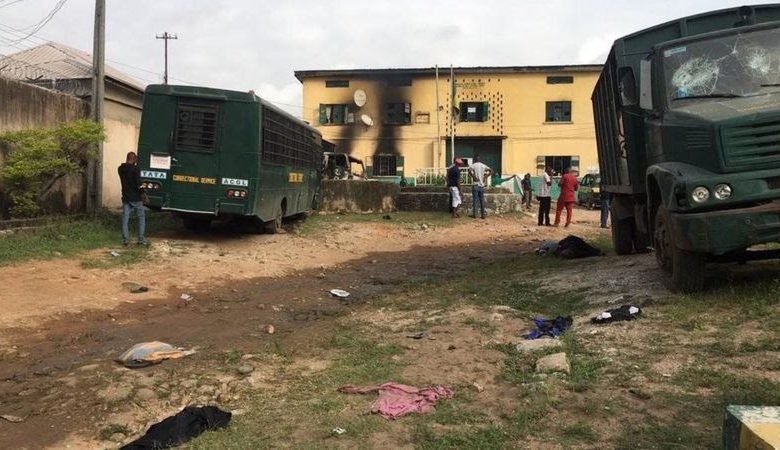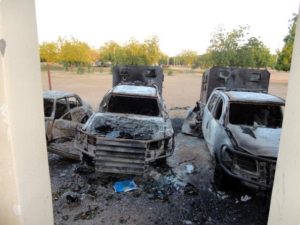
Renewed separatist agitation and a spike in violent attacks on security forces have led to deteriorating security conditions in Northeast Nigeria Nigeria.
Security incidents gradually escalated in the region following the establishment of the Eastern Security Network (ESN), a militant wing of the proscribed Indigenous People of Biafra (IPOB).
In 2018, a Federal High Court in Nigeria’s capital Abuja dismissed the application by the IPOB asking for an order to reverse the order proscribing the group and designating it a terrorist organisation.
Nnamdi Kanu, the leader of IPOB, has routinely spread inflammatory messages through broadcasts on the radio channel, Radio Biafra, which he founded in 2009.
He was arrested in Oct. 2015 in Lagos, Southwest Nigeria, for conspiring to commit treason. Kanu subsequently jumped bail in 2017 and fled the country.
IPOB exploits social grievances and fears which allow the group to rally popular support among locals.
According to a Thecable report, IPOB has recruited over 50,000 foot soldiers into ESN and stockpiled arms, most of which were stolen from police armoury.
“They have been bringing in arms through Cameroon in partnership with the Ambazonia Governing Council, the separatist movement in Southern Cameroon. IPOB sends at least 2,000 men and women to Cameroon for training on weapon handling every week,” a source told the paper.
Over the past few months, security forces, election offices, police outposts, and a prison facility have been targeted in multiple attacks across the region.
In April, the Police blamed IPOB for the attack on a correctional facility and police cells on Monday morning in Owerri, Imo State.
According to a report, over 127 policemen and other security personnel have been killed during attacks while more than 25 police stations have been targeted in parts of the South-East and South-South in the past five months.
The destruction of these facilities, killing of officers and degrading of law enforcement capacity has led to concern, due to similarity with the tactics used by the Boko Haram terror group in the course of its over a decade long insurgency and terror campaign in northeast Nigeria.

“It’s so interesting, sad, and amazing how this Southeast crisis is assuming direct resemblance to what occurred in the North-East,” Abdulaziz Abdulaziz, the deputy Editor of Daily Trust said in a Facebook post.
Abdulaziz also highlighted the dangers of local support and silence from elites on the activities of the group.
Nigerian President Muhammadu Buhari recently issued a warning to those promoting insurrection and burning national facilities.
It’s unclear whether the government will launch a military operation to tackle the security crisis or adopt a different response. However, previous military operations have not been able to resolve or address the problem.
Support Our Journalism
There are millions of ordinary people affected by conflict in Africa whose stories are missing in the mainstream media. HumAngle is determined to tell those challenging and under-reported stories, hoping that the people impacted by these conflicts will find the safety and security they deserve.
To ensure that we continue to provide public service coverage, we have a small favour to ask you. We want you to be part of our journalistic endeavour by contributing a token to us.
Your donation will further promote a robust, free, and independent media.
Donate HereStay Closer To The Stories That Matter




